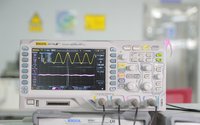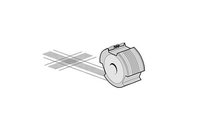Third party certification organization for high and low temperature testing of automotive grade chips
Date:2024-05-06 14:07:28 Views:2045
With the rapid development of automotive technology, high and low temperature testing of automotive grade chips has become particularly important. These chips carry the core functions of automotive systems, such as autonomous driving, in car entertainment, and vehicle network connectivity. However, under extreme temperature conditions, these chips may encounter various challenges, including performance degradation, stability issues, and even malfunctions. Therefore, conducting comprehensive high and low temperature testing on automotive grade chips is a crucial step in ensuring the safe and reliable operation of automotive systems.
In order to ensure the reliability of automotive grade chips, the Automotive Electronics Committee (AEC) has developed a complete set of test standards, namely the AEC-Q100 reliability certification test conditions. These test conditions include testing the chip in various aspects such as temperature, humidity, and mechanical stress to simulate various situations that cars may encounter during use.
_20240506135710_897.jpg)
In the AEC-Q100 reliability certification test, the chip needs to undergo a series of strict tests, including but not limited to: temperature cycling test, humidity cycling test, mechanical stress test, power fluctuation test, etc. The purpose of these tests is to ensure that automotive grade chips can maintain stable performance under various environmental conditions, thereby providing assurance for the safety and reliability of the vehicle.
In addition to the AEC-Q100 reliability certification test, automotive grade chips also need to meet some other strict testing and certification requirements. For example, automotive grade chips need to comply with the ISO 26262 functional safety standard, which specifies the functional safety requirements for automotive electronic systems during the design and development process. In addition, automotive grade chips also need to pass ISO 9001 quality management system certification to ensure that their production process complies with international quality standards.
The high and low temperature testing of automotive grade chips is an important method for evaluating their performance and reliability. The high and low temperature impact airflow meter is a device used for high and low temperature testing of automotive grade chips. It can simulate various extreme temperature environments that cars may encounter during use, thereby conducting high and low temperature tests on chips.
When conducting high and low temperature tests, place the chip on the testing fixture, and then place the testing fixture in the high and low temperature impact heat flow hood. This device can simulate high and low temperature environments by heating and cooling air. At the same time, the device can also perform temperature cycling tests, which quickly switch between high and low temperatures to simulate various temperature changes that the car may encounter during driving.
Through comprehensive temperature stress testing and long-term operation testing, the performance and stability of chips under different temperature conditions can be effectively evaluated. To ensure the reliability of automotive grade chips, car manufacturers and chip suppliers need to jointly follow strict testing and certification requirements to ensure that automotive grade chips can work stably under various environmental conditions. Meanwhile, with the continuous development of automotive technology, the reliability technology of automotive grade chips is also constantly advancing and improving.




 Weixin Service
Weixin Service

 DouYin
DouYin
 KuaiShou
KuaiShou





















